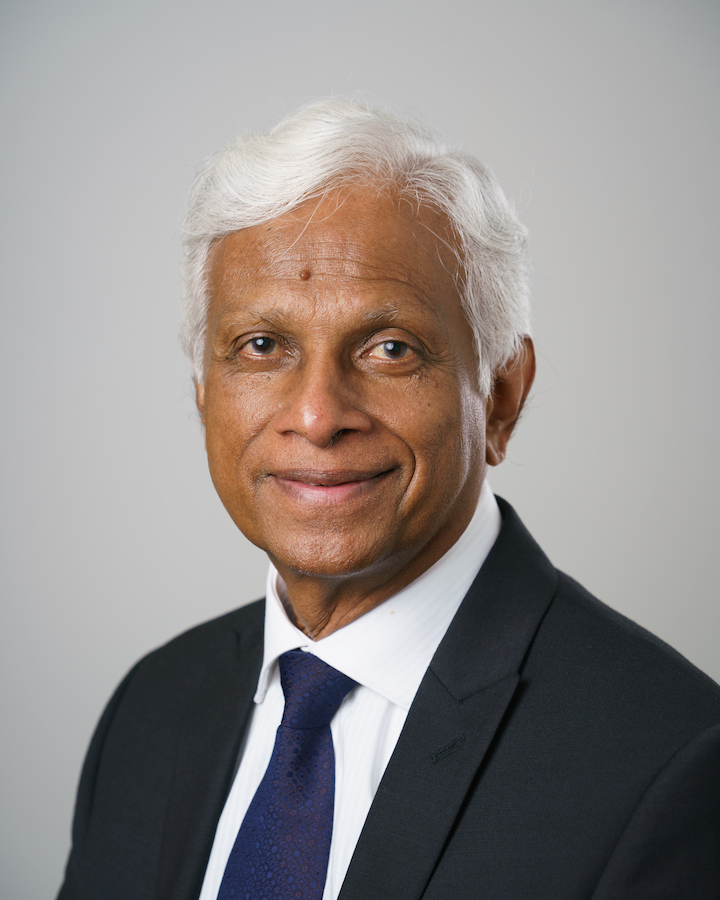
Tell us about your background and international/research-for-development interests.
I obtained my PhD and master's degrees from the Institute of Aquaculture, University of Stirling in Scotland, UK. My PhD thesis was on stress mechanisms in the early-life stages of Nile tilapia (Oreochromis niloticus) under heavy metal stress. In the international arena, I focused on small-scale aquaculture development and skills smallholder farmers can develop to enhance their livelihoods, income, and nutrition. I have worked in Bangladesh, India, Sri Lanka, Malawi, Sierra Leone, Nigeria, Kyrgyzstan, Vietnam, Oman, Iraq (worked from Jordan), Latvia, and UK.
How does your professional background inform your approach at the Fish Innovation Lab?
My task with the lab is to coordinate the five activities in Nigeria. My work in technical advisory roles and project management with international organizations such as the Food and Agriculture Organization of the United Nations (FAO), the United Nations Development Programme (UNDP), the Network of Aquaculture Centres in Asia-Pacific (NACA), WorldFish, and the Institute of Aquaculture at the University of Stirling helps me in my coordinator role with the lab.
In your view, what are the most pressing challenges related to food and nutrition security worldwide, and what are some ways we can overcome these challenges?
Demographic and economic changes in many countries place tremendous pressure on natural resources and the food systems as well as implications on food and nutrition security. Malnutrition remains a major public health and development concern in most parts of the developing world. Continued efforts to increase access to fish as a nutritious food are important to improve dietary diversity, particularly among rural and marginal communities.
What do you wish other people knew about fish and/or food security?
In many countries, fish supplies from marine capture fisheries will remain stable or decline, so future growth in fish supplies will have to come from aquaculture, artisanal fisheries, and imports. By increasing the rate of growth of aquaculture deploying climate-resilient production systems and practices and optimizing the management of small-scale fisheries, not only will the supply increase and the contribution of fish to the lives of people will be improved, but also a significant amount of foreign currency used for fish imports could be saved and effectively be diverted to improve smallholder-based aquaculture and small-scale fisheries.
What other careers might you have pursued if you hadn't pursued the career you are currently in?
During my undergraduate studies, I wanted to become a university lecturer in chemistry, but I chose zoology as my specialized subject. I always love to teach, but from day one after I graduated from my undergraduate studies, I chose to become a researcher in aquaculture. Since then, I never thought of changing my career path.
What are your hobbies or activities outside of work?
Outside my work, I spend my time listening to news and music and chatting with my old school and university mates. I like to keep in contact with my old friends.
What is on your bucket list? (What do you hope to do, accomplish, see, experience, etc. in your lifetime that you haven’t yet?)
I always have dreamed of publishing a book on aquaculture, but my workload hasn’t allowed me to pursue my dream quite yet. Hopefully, retirement will be the time to pursue this dream.
If you would like to, tell us about your family, where you are from, and any personal details you would like to share.
I am originally from Sri Lanka. I have three sisters and four brothers. My father was a retired civil servant, a great believer in education, and inspired me to do my higher studies. I migrated to the UK with my wife, Ranganie, and our two sons, Sachi and Sanju, in January 2004. Both my sons are now grown up and pursuing their careers as medical doctors.
Published May 4, 2023
